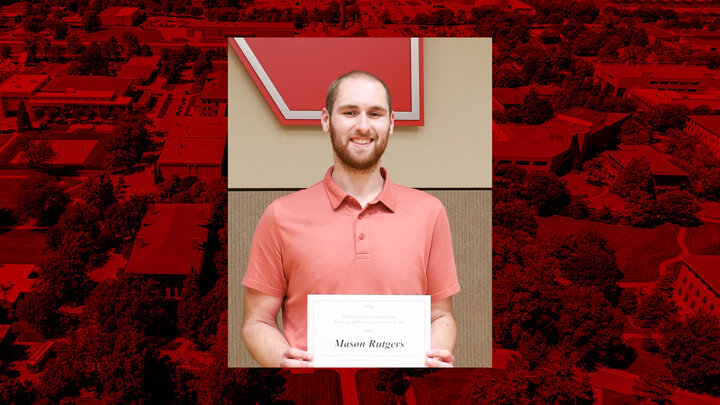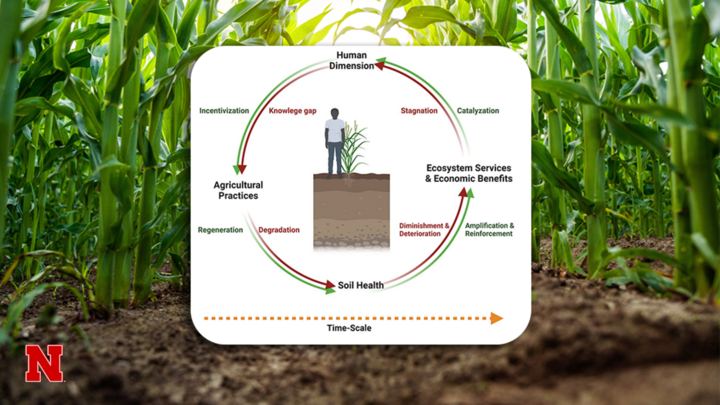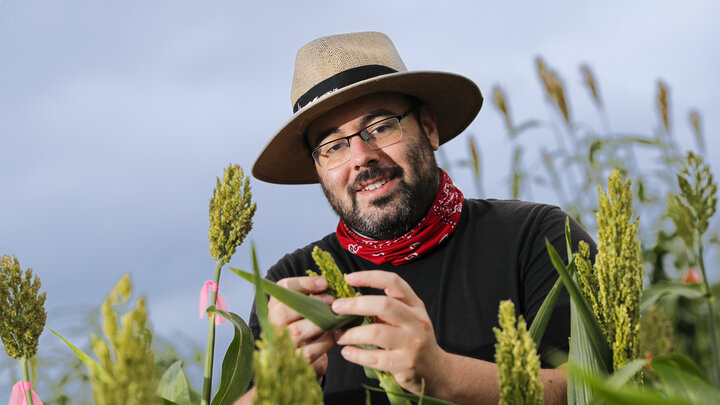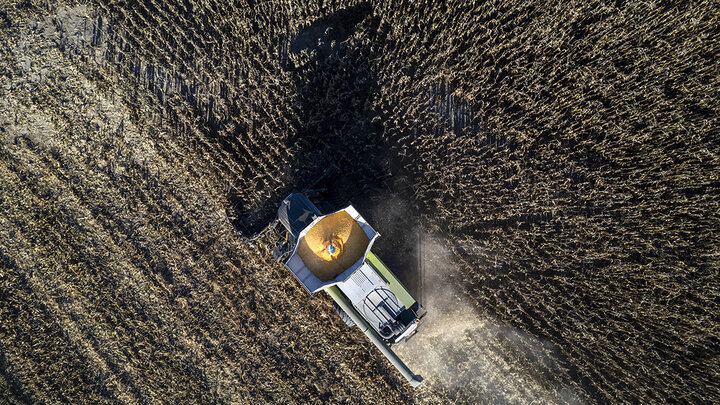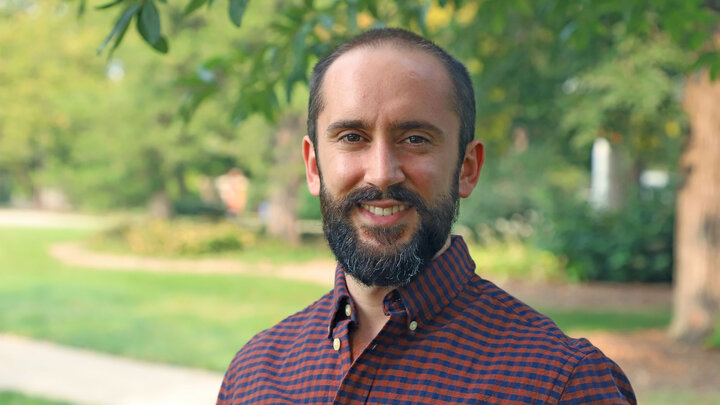Mason Rutgers, senior plant and landscape systems major, was honored with the Holling Family Award for Undergraduate Teaching and Learning Assistant for academic year 2022–2023 at the College of Agricultural Sciences and Natural Resources Awards Luncheon May 12 at the Nebraska East Union.
Rutgers’ first teaching assistant position was fall 2021 for Plant and Landscape Systems 131 Plant Science with David Holding, professor of agronomy and horticulture.
He was just a sophomore.
Holding said he generally prefers to have graduate student teaching assistants for PLAS 131 but has recruited undergraduates – typically as a junior – if he’s confident in their abilities and grasp of the concepts, and their ability to interact effectively with other students.
“In Mason’s case, I did not hesitate to recruit him as a sophomore as he showed such excellence when he took the class in 2020 at the height of the pandemic,” Holding said. “He is always completely prepared for class and has a wonderful, confident and gentle way with students and garners respect even if they are at a more senior standing than himself.”
Rutgers has also been a teaching assistant for PLAS 132 Agronomic Plant Science Lab, PLAS/SOIL 153 Soil Resources and PLAS/SOIL 366 Soil Nutrient Relationships.
Becky Young, associate professor of practice of agronomy and horticulture and lead instructor for PLAS/SOIL 153, said she was immediately impressed by Mason’s ability to easily understand soil science content and his strong communication skills and ability to build excellent relationships with his instructors, peers and students. He is also eager to take on additional responsibilities or to try something new.
“He quickly became a sounding board and collaborator for new ideas and approaches in our teaching of soil science,” Young said. “I have come to rely on Mason as one of my strongest, most dependable, adept and motivated T.A.’s I have supervised over the last five years. He has become a well-respected pillar among his peers and a highly sought-after T.A.”
“Being a teaching assistant has greatly improved my experiences as a student, connecting me with faculty and peers within the department and reaffirming important content that didn’t stick or make sense when I first took the class,” Rutgers said. “It being a well-paying and flexible on-campus job helps quite a bit too.”
Rutgers grew up in Lynden, Washington, in a county that produces nearly 85% of the annual raspberry crop in the United States. While working on one of the raspberry farms during high school, he became interested in crop management.
“While my science classes were always interesting, I didn’t fall in love with science until university when I was introduced to plant biology, soil chemistry and soil physics,” Rutgers said.
He knew that all the best agronomy programs were in the Midwest so he applied to many land grant universities. He was initially drawn to the University of Nebraska–Lincoln by the quality of the program and affordability.
He applied to many land-grant universities in the Midwest knowing that was where all the best agronomy programs were located. He was initially drawn to the University of Nebraska–Lincoln by the quality of the program and affordability.
“I fell in love as soon as I stepped on campus and met with the recruiting staff,” Rutgers said. “I decided I would come to UNL almost immediately.”
In addition to taking classes and his teaching assistant duties, Rutgers received a UCARE award to conduct research. He works with Judy Turk, assistant professor in the School of Natural Resources, studying clay distribution in Nebraska wetland soils. He plans to study the relationship between soil color and organic carbon content for his senior thesis.
“Research has revealed career opportunities and traveling experiences within soil science I wouldn’t have been exposed to otherwise,” Rutgers said.
Rutgers is also member of the successful Soil Judging Team, coached by Young and Turk. He said they have inspired in him a passion for studying soils.
After he graduates in May 2024, Rutgers plans to pursue graduate school to study soil science, particularly soil morphology as affected by biogeochemical cycling. Eventually he hopes to work as a soil scientist.
The Holling Family Award Program for Teaching Excellence was made possible by a gift from the Holling family to honor their pioneer parents. John Holling was a 1912 electrical engineering graduate of the university and his brother, Gustave Holling, attended the College of Agriculture before farming the family’s land in the Wood River area.
